Don’t hurt people and don’t take their stuff—sound advice whether given by Matt Kibbe, your mother, or your 2nd grade teacher. However, in our current climate, it may be easier said than done. It’s frequently bastardized into “don’t hurt me and don’t take my stuff.” A deceptively similar, if radically different idea. At the heart of the matter is whether to act in our own self-interest or to do what benefits the greater good.
The theory of psychological egoism suggests that all of our behaviors are motivated by self-interest, that even the most generous and selfless acts are driven by what benefits us the most. While it may be cynical to accept the premise as universal, it is absurd to disregard egoism entirely. Some people are selfish most of the time. Most people are selfish some of the time.
How then does this apply to politics? It’s clear that a government of the people and by the people cannot be nobler than the sum of its parts. If we the people don’t apply Matt Kibbe’s mantra in our daily lives, how can it ever translate to our government? A union guided by those of questionable ethics is naturally questionable. But, when lorded over by the same, it becomes utterly suspect.
The government has a bad habit of attempting to induce moral behavior with both material incentives and punitive disincentives. Of course, the theory is that the average citizen is nothing more than a selfish brute, unable to think of others, and only inclined to make the “right” decision when prodded to do so.
Those of us who are optimistic believe that self-interest doesn’t have to be our primary motivation and that the so-called carrot on a stick method does more harm than good. Psychological research seems to confirm our suspicions.
An investigation appearing in the January 2000 issue of the Journal of Legal Studies examined the effectiveness of punishing bad behavior with a fine. The study took place at several large daycare centers in Haifa, Israel. Researchers tracked how many parents arrived late to pick up their children, thus inconveniencing the staff.
Upon instituting a small monetary fine for those parents who arrived late, they discovered that the number of late pickups did not decline.
On the contrary, it nearly doubled. Researchers believe that by introducing the incentive structure, the daycare providers reduced their after-school hours to a commodity. Any guilt felt by the parents for imposing on care giver’s personal time was replaced by the sense that late pickup was something they could buy, something to which they were entitled. They willingly substituted a few dollars and an ill-conceived policy for their sense of personal responsibility.
Another study (Cardenas et al., 2000) published in the journal World Development, examined the habits of Colombian villagers who are jointly dependent on forest resources they do not own. They were asked to play a game where they had to decide how much firewood to take from the forest. Some played in small groups with limited or no communication with others outside of their company. Some groups were allowed to communicate freely. The final variable introduced a rule limiting the amount of firewood they were allowed to harvest. Non-compliance was punishable by a fine.
With no rewards, penalties, or knowledge of others’ behavior, the villagers seemed to recognize that exploitation of the shared resource for their self-interest would ultimately harm the forest. They instinctively didn’t hurt people and didn’t take their stuff. Interestingly, when harvest limits and a fine for non-compliance were introduced, and the groups were made aware of how others behaved, selfish behavior increased! Participants gradually began to harvest more and more firewood despite the fine, a decision that would ultimately deplete the forest. It would seem that when given the freedom to make their own choices, they did. And they were better off for it.
What do these examples tell us about ourselves and the state of our Union? Is it possible that so much governmental intervention into every aspect of our daily lives has altered not only our freedoms but also our perception? Has constant supervision from the Nanny State reduced our capacity for not only empathy but also common sense? Worse yet, has it reduced other people to mere commodities?
Let’s consider the current COVID-19 situation. Recent statistics indicate that some 89% of the U.S. population has at least a high school diploma or GED, and we are by all accounts a well-educated citizenry. Nielsen says 95.9% of U.S. homes have televisions, and the Pew Research Center reports that 81% of Americans own smartphones. It would seem that finding someone ignorant or unaware of COVID-19 at this point would be a labor fit for Hercules himself.
Surely among a population as well-educated and informed as ours, the basic methods for preventing the spread of germs are common knowledge. Even the youngest of children know to cover their mouth and nose when they cough or sneeze. Why then is there such opposition to wearing a mask and social distancing?
The notion that President Trump has somehow managed to dupe so many Americans into a false sense of security to ensure his re-election, although fashionable in partisan politics, is lazy and intellectually dishonest. Even if this were the case initially, fifteen minutes of television or the internet and some common sense would lead one to conclude that taking medical advice from the President is a bit misguided.
Is it possible that the sheer number of intrusions by various “benevolent” government agencies into our daily lives has, over time, rendered us somewhat indifferent to their pleas? If so, the only logical conclusion, from the big government standpoint, is to “turn up the volume” with even more intrusions and penalties. Thus the cycle continues.
The knee jerk and somewhat harsh policies instituted by state and local governments across the country are part of the problem with our response to the virus. Masks, temporary travel restrictions, and social distancing are in themselves fine tools to combat COVID-19. They make sense. But, as with anything, 100% compliance is not possible. When limited non-compliance meets with heavy-handed enforcement, the result is increased resistance.
Reasonable people value their freedom and their health. It’s impossible to enjoy one without the other. They think about other people and how their actions impact others. They don’t enjoy being ordered about, nor do they tell others what to do. Reasonable people think and take responsibility for themselves, something the government seldom, if ever does.
Although intended to rebut governmental overreach, at its core, “don’t hurt people and don’t take their stuff” is a statement of personal obligation. We must all declare it each and every day with our actions. It is our promise to each other. Only then can we ensure that our government is of, by, and most importantly for the people.

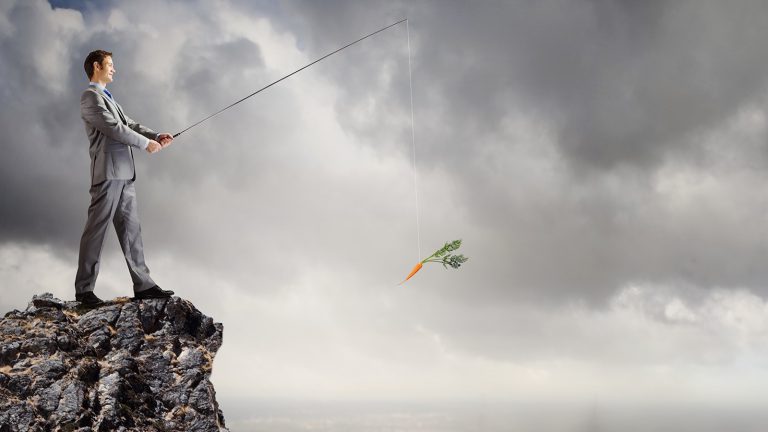
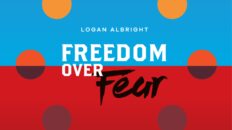

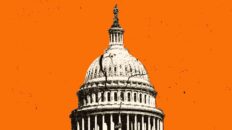





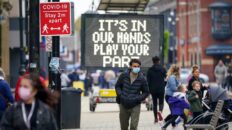
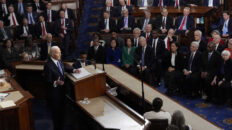


Add comment